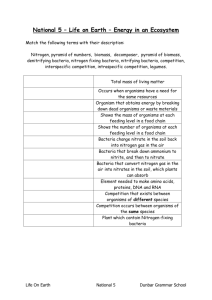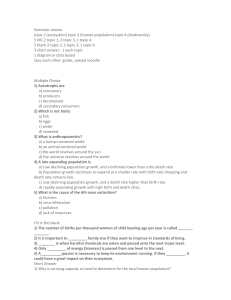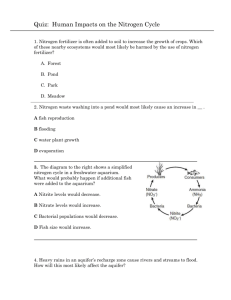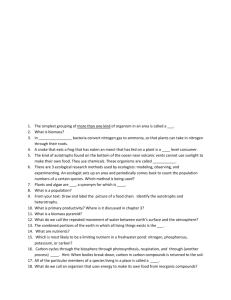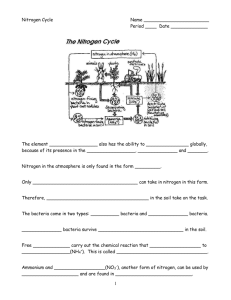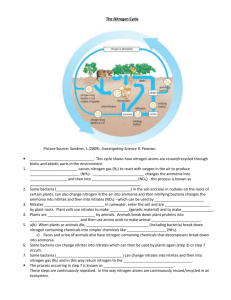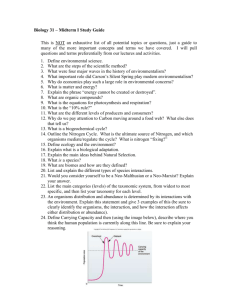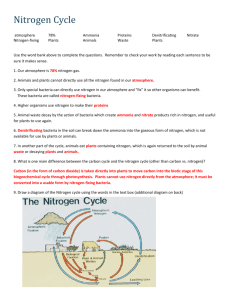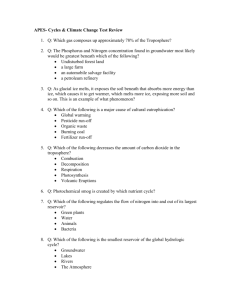NITROGEN CYCLE
advertisement
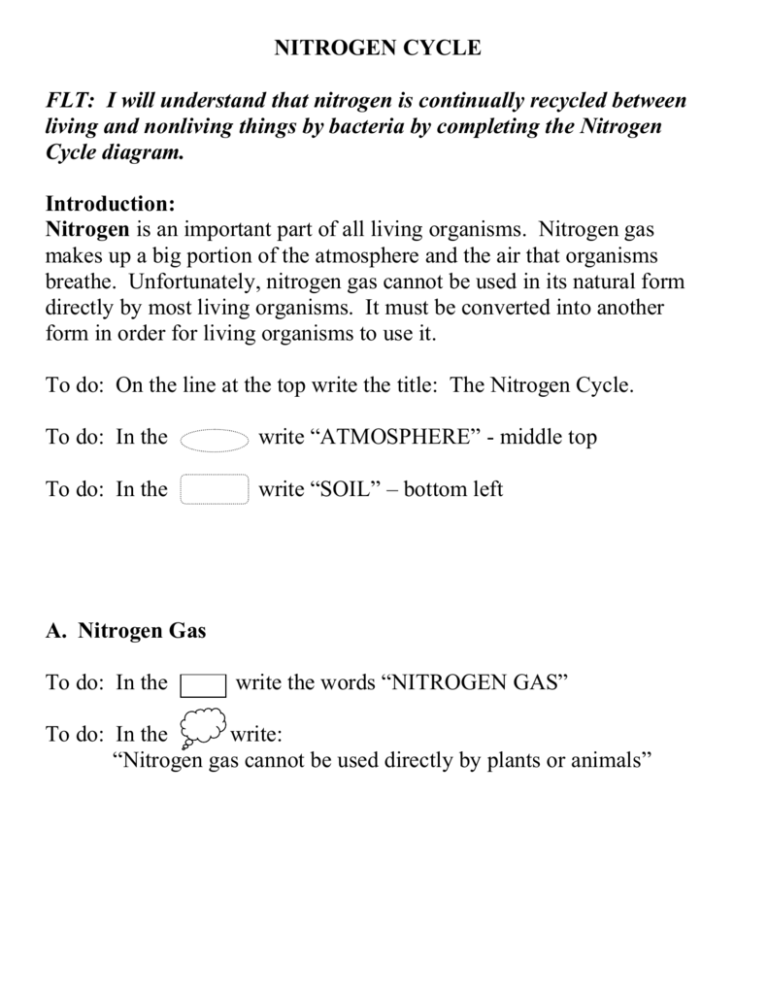
NITROGEN CYCLE FLT: I will understand that nitrogen is continually recycled between living and nonliving things by bacteria by completing the Nitrogen Cycle diagram. Introduction: Nitrogen is an important part of all living organisms. Nitrogen gas makes up a big portion of the atmosphere and the air that organisms breathe. Unfortunately, nitrogen gas cannot be used in its natural form directly by most living organisms. It must be converted into another form in order for living organisms to use it. To do: On the line at the top write the title: The Nitrogen Cycle. To do: In the write “ATMOSPHERE” - middle top To do: In the write “SOIL” – bottom left A. Nitrogen Gas To do: In the write the words “NITROGEN GAS” To do: In the write: “Nitrogen gas cannot be used directly by plants or animals” B. Converting Nitrogen To do: In the write: “Nitrogen must be converted to a usable form” C. Plants with bacteria Certain plants, called legumes (example: soybeans), have bacteria on their roots that can convert nitrogen into a usable form. To do: In the box with plants write: “Roots of legumes contain bacteria” D. Nitrogen-fixing bacteria Nitrogen-fixing bacteria can convert nitrogen gas into ammonia. Ammonia can then get converted into a form that plants and animals can use. Essentially they “FIX” the nitrogen so it can be used! To do: In the write: “Nitrogen-fixing bacteria” To do: Fill-in the box with what the nitrogen-fixing bacteria do. E. Nitrifying bacteria Once nitrogen-fixing bacteria convert nitrogen gas into ammonia, another type of bacteria in the soil, nitrifying bacteria, convert the ammonia into nitrates and nitrites. Plants can then take the nitrates and nitrites into their roots so the nitrogen can be used by the plant. Animals will then eat the plants to get the nitrogen that they need for their tissues. To do: In the write: “Nitrifying bacteria” To do: Fill-in the box with what the nitrifying bacteria do. F. Decomposers When plants and animals die, their body parts need to get recycled. The nitrogen in their tissues is recycled back to the soil by decomposers. Another thing that is recycled is animal excrement (aka poop!). Decomposers, such as worms, fungi and bacteria, “decompose” the tissue and return the nitrogen, in the form of ammonia, back to the soil. To do: In the write: “Decomposers” To do: Fill-in the box with what decomposers do. G. Denitrifying bacteria Eventually any excess nitrates and nitrites that are in the soil will need to be returned to the atmosphere. There is another type of bacteria, called denitrifying bacteria, that convert nitrates and nitrites back into nitrogen gas. The nitrogen gas is returned to the atmosphere to start the cycle all over again. As a helpful hint, “de-” means to “undo”. So the “denitrifying bacteria” are “undoing” the nitrogen to return it to its original form. To do: In the write: “Denitrifying bacteria” To do: Fill-in the box with what denitrifying bacteria do. H. Ocean Everything that is occurring on land is also occurring in the ocean. There are bacteria in the ocean that can convert nitrogen in the water into a usable form. There are also organisms that breakdown dead marine organisms and return the nitrogen to the earth. There are also organisms that return nitrogen from ocean floor to the water. To do: In the bottom right hand corner draw a box To do: Write in the box: “All of this occurs in the ocean, too” I. Complete the chart To do: In the write: “Nitrogen gas is returned to the atmosphere” To do: Color the soil and atmosphere appropriate colors. To do: Work on the next activity.
